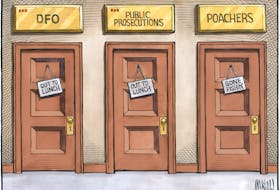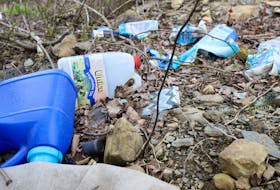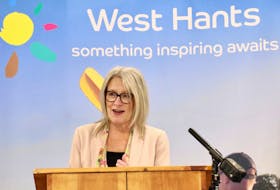The Pictou County Women’s Resource and Sexual Assault Centre is continuing its fight back against sexual violence with the second of two workshops in New Glasgow Friday.
The workshop, titled ‘Trauma-Informed Practice Working with Sexualized Violence’ will cover subjects including sexualized violence itself, handling the disclosure of abuse, how to avoid re-traumatizing survivors and other topics.
“We are seeing an increase in survivors coming forward to talk of their experiences of sexualized violence,” said Shelley Curtis-Thompson, PCWRSAC’s executive director.
Most recently, dozens of gymnasts packed a Michigan courtroom and testified how their former doctor, Larry Nassar, had repeatedly sexually assaulted them as patients at his clinic.
More than 150 survivors offered court testimony on Nassar’s actions that resulted in his being sentenced to 40 to 175 years in prison.
While women and girls reported Nassar’s behaviour for years, it was only thanks to the #MeToo movement against sexualized violence and harassment that survivors are now being believed.
Sparked by allegations of sexual assault against Hollywood mogul Harvey Weinstein last fall, the #MeToo movement has helped topple celebrities, politicians and others accused of violence against women.
In Canada, accusations of sexual misconduct forced out Ontario Progressive Conservative leader Patrick Brown early Thursday morning. His Nova Scotian counterpart Jamie Baillie was also forced to step down after allegations of inappropriate behaviour.
Before #MeToo started, victims of violence who spoke out often faced victim-blaming. For example, they may be asked if they were drinking or wearing short skirts at the time of the assault, in an attempt to shift blame from attackers.
“I think the climate is contributing to offering an opportunity to women and men, because men are sexually violated too – usually in their youth – and there’s hope that they’ll be heard and they’ll be believed,” said Curtis-Thompson.
However, much work remains to be done, despite #MeToo’s early successes.
According to Curtis-Thompson, an average of one Canadian woman in every three experiences sexualized violence.
However, when factors such as culture or race are factored in, the proportion of those suffering from sexualized violence skyrockets.
Women from a First Nations background are especially vulnerable, as shown by the numbers of those murdered or missing, of which the final total may never be known.
Other factors that may make people more vulnerable includes one’s age, personal history, or socioeconomic status, among others.
“Almost everyone that we speak to has either themselves been impacted by sexualized violence or has seen sexualized violence through the experience of a loved one,” said Curtis-Thompson.
The sold-out workshop starts at 9 a.m. Friday at Summer Street Industries in New Glasgow.
The workshop falls under the PCWRSAC’s Mapping Our Road to Power and Healing project and is also receiving provincial backing.








